High Blood Pressure
The diagnosis of high blood pressure is not complicated. However, more than 50% of those affected ignore it and only a small percentage takes adequate treatment.
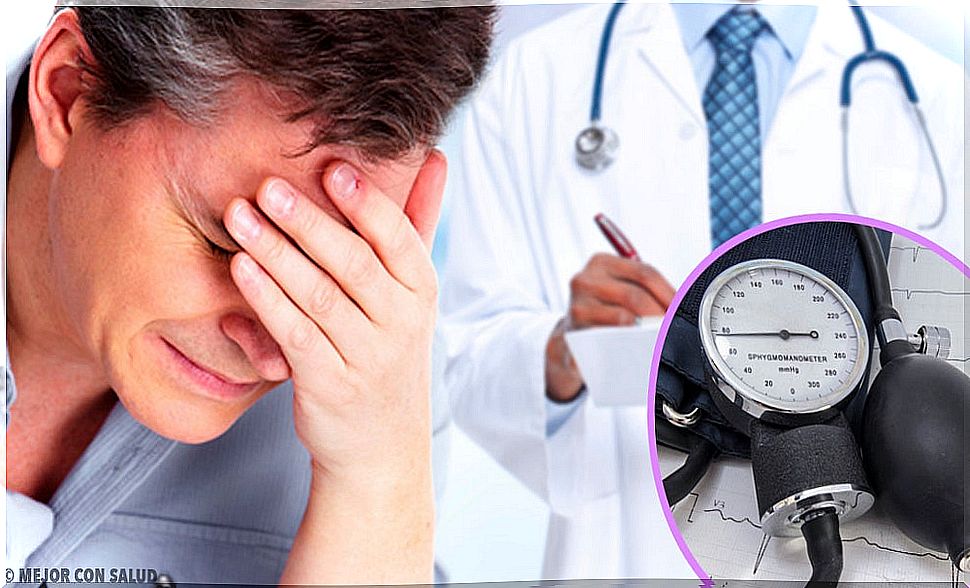
Hypertension is a syndrome of multiple etiology that causes systemic vascular damage. It is characterized by presenting in patients a systolic blood pressure of 140 mmHg or higher, as well as diastolic blood pressure of 90 mmHg or higher. This condition increases the morbidity and mortality of other cardiovascular diseases, such as:
- Heart failure.
- Myocardial infarction.
- Hypertensive retinopathy.
- Chronic renal insufficiency.
- Cerebrovascular disease
- Peripheral arterial disease.
The picture of arterial hypertension presents asymptomatically during the early stages, therefore, there is a high percentage of people who do not know that they suffer from this syndrome and who, nevertheless, suffer from it.
“During the hours of sleep the blood pressure drops significantly. Nighttime rest is essential but high blood pressure figures when waking up first thing in the morning are a worrying sign. “
-Dr. Michel Brack-
Classification of arterial hypertension
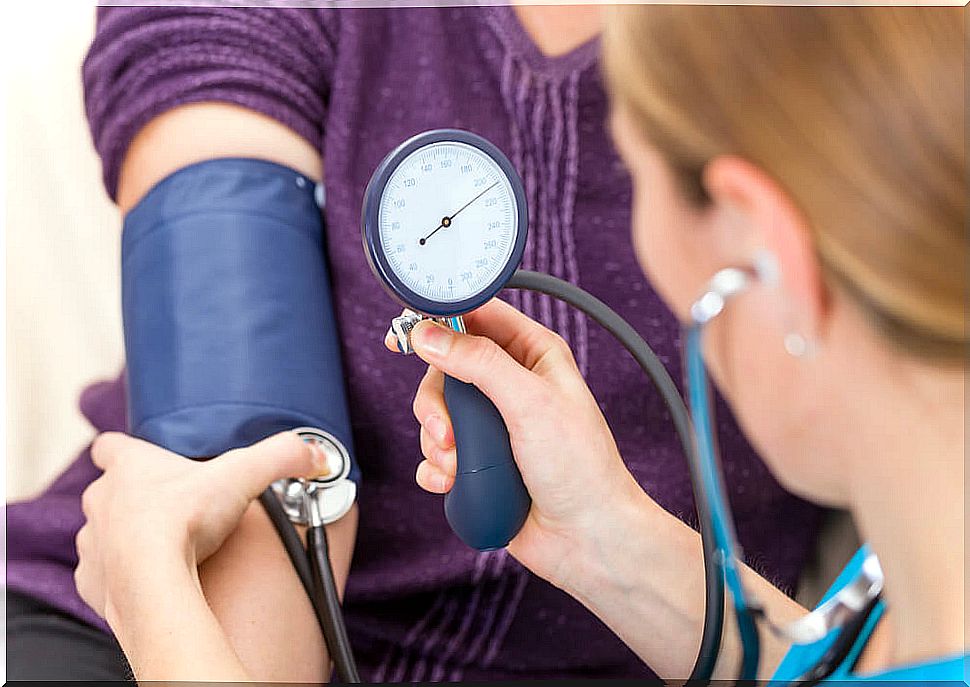
There are different classifications of high blood pressure as well as the risk of developing it. Generally, high blood pressure is classified as follows:
- Group A. Patients with high normal blood pressure figures, without presenting target organ damage. These are candidates to require follow-up for one year, during which the patient will be instructed first to make the necessary modifications in their lifestyle, to ensure they have a healthy style, and secondly, a monitoring of blood pressure figures throughout said period.
- Group B. Patients who do not have target organ damage but have one or more cardiovascular risk factors. The majority of those affected are in this group. In this group, the doctor will prescribe a pharmacological treatment.
- Group C. Patients with target organ damage. They have normal to high blood pressure, but with more than 3 risk factors for kidney disease, diabetes, or heart failure. Similarly, medical treatment is indicated as well as making changes in lifestyle, if necessary.
Who has high blood pressure?
High blood pressure occurs at any age. However, it is very common for people over 65 to suffer from it, especially in males, according to statistics and studies carried out to date. On the other hand, it should be noted that, in the case of women, high blood pressure occurs at the end of menopause.
Risk factor’s
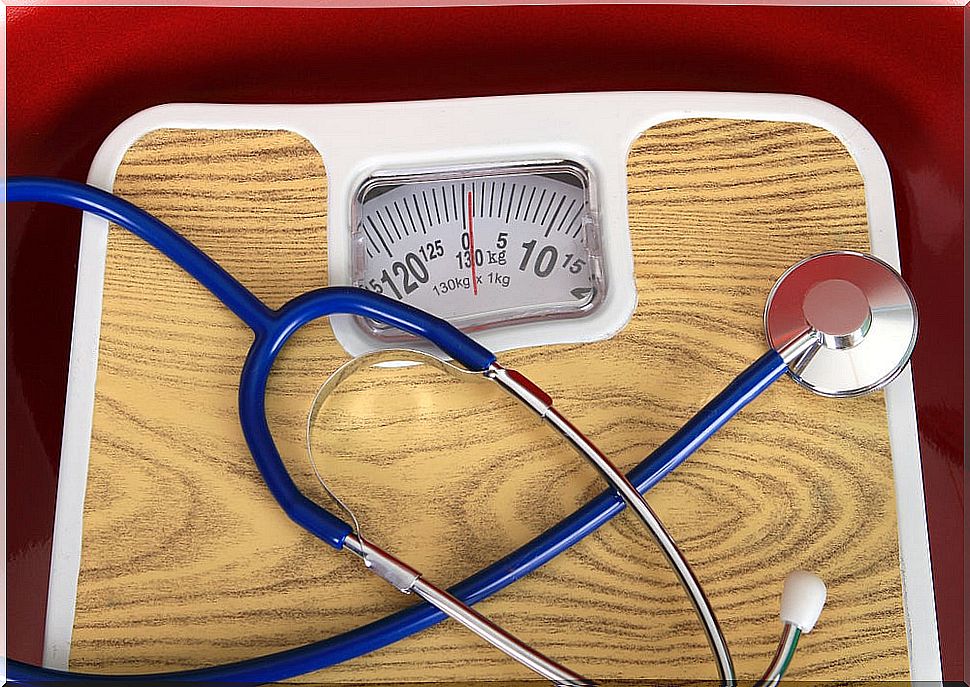
- Obesity. Increased abdominal fat increases the risk of high blood pressure.
- Insulin resistance This is a metabolic disorder that involves the reduction of glucose in the peripheral skeletal muscle. Insulin favors renal sodium retention and therefore there is an increase in intravascular volume.
- Excessive alcohol consumption. It causes an increase in the levels of renin -angiotensin and cortisol. This causes alterations in the cardiovascular system
- Salt intake. An excessive intake of sodium is generated. Which causes an increase in blood volume and increases cardiac output.
- Sedentary. Lack of exercise alters the vasodilation of the endothelium (tissue that covers the heart). There is also an increase in cholesterol, triglycerides because they decrease high intensity lipoproteins.
- Stress. People exposed to psychogenic stress can develop hypertension, even in healthy young people.
- Low potassium intake. This can be a risk factor for developing strokes.
- Smoking Tobacco use raises blood pressure. In addition, nicotine has a vasodilator effect on metabolites.
Symptoms
- Dizziness
- Rapid pulse
- Headache.
- Blurred vision (seeing flashes of light).
- Ringing in the ears.
- Difficulty breathing.
- Spots in the eyes.
Causes
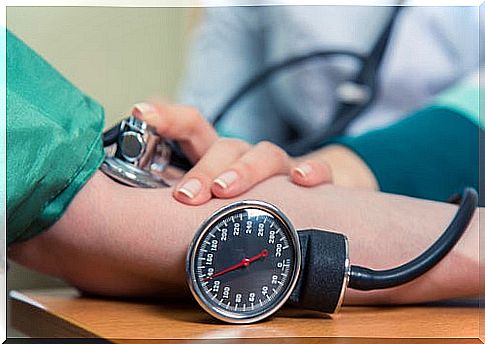
- Primary. It presents idiopathically, that is, without having an underlying pathology.
- High school. It happens when blood pressure is raised by other factors, such as:
- Preeclampsia.
- Kidney disease.
- Hormonal abnormalities
- Cardiovascular diseases.
Diagnosis
It is said that there is suspicion of hypertension, when the average of 2 consecutive measurements in the arm with the highest blood pressure value is greater than or equal to 130/85. If so, it is essential that the person go to a health facility, in order to have their pressure measured and the diagnosis confirmed or ruled out.
In the meantime, it should be known that when blood pressure is equal to or greater than 180/110, it can be an indication of a possible hypertensive crisis.
Treatment
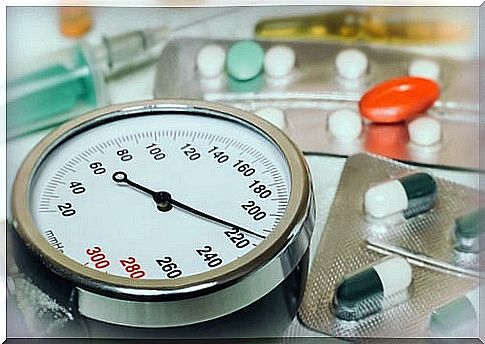
With regard to the treatment of arterial hypertension, the drugs prescribed to the patient reduce the risk of suffering from cardiovascular disease or, failing that, death. Hence the importance of starting treatment immediately once the diagnosis is confirmed.
Because high blood pressure usually has no symptoms, medications should be taken at the same time, since blood pressure varies throughout the day. In addition, this requires monitoring of the results to verify that the treatment is normalizing the pressure.
The patient with arterial hypertension should know that:
- High blood pressure is a lifelong condition, and medications only serve to control it.
- It is necessary to take the medications regularly and not stop them.
- Usually 2 or more drugs are prescribed. These do not act immediately, but rather after a few weeks.
- The dosage of the medications varies and has nothing to do with the improvement or worsening of the patient.
recommendations

- Avoid the consumption of alcoholic drinks.
- Eat at exact times to control weight.
- Carry out an exercise program on a regular basis.
- Use relaxation techniques to avoid stress pictures.
- Maintain a balanced diet rich in fruits and vegetables, but low in salts and saturated fats.









